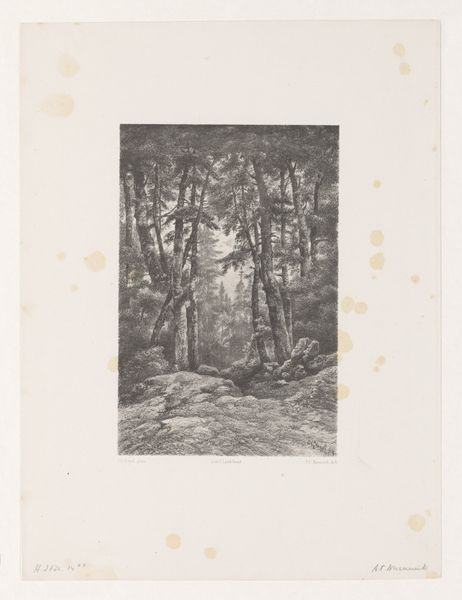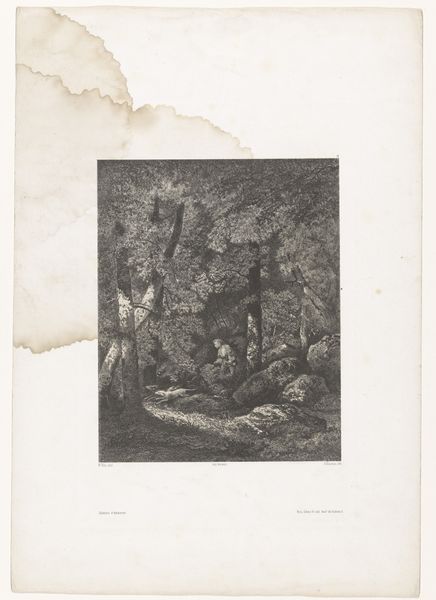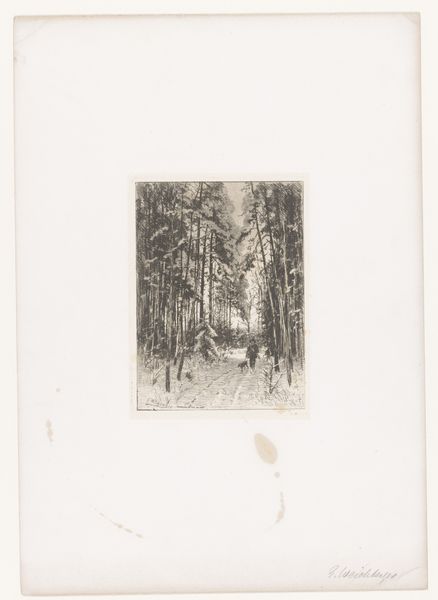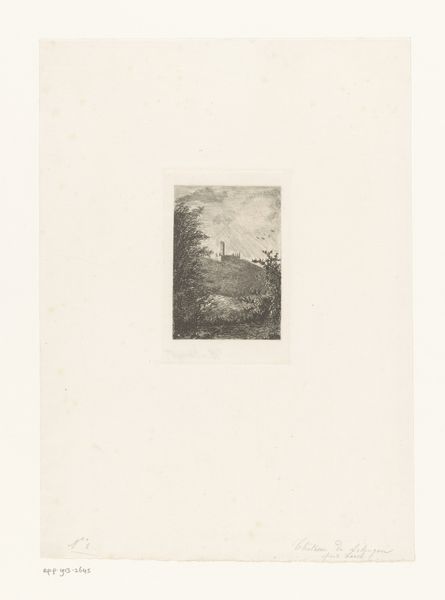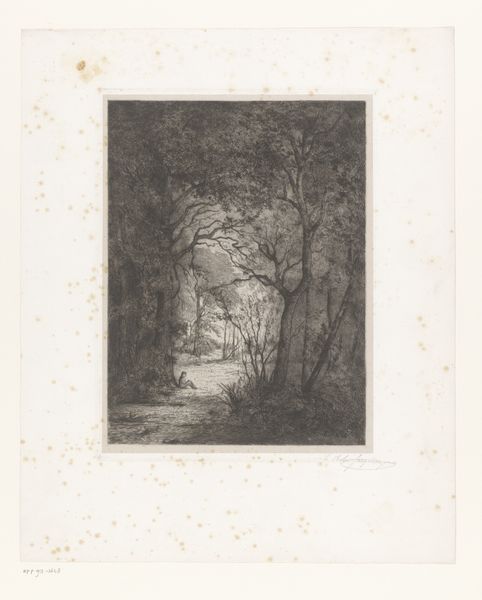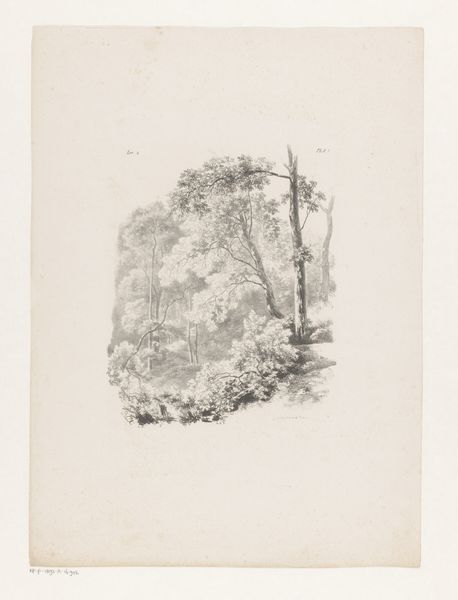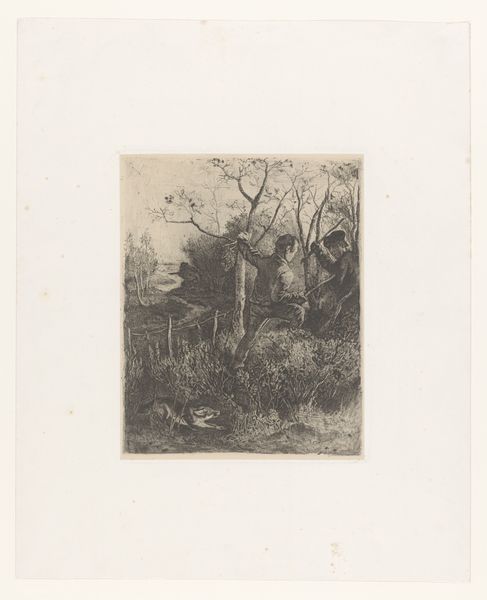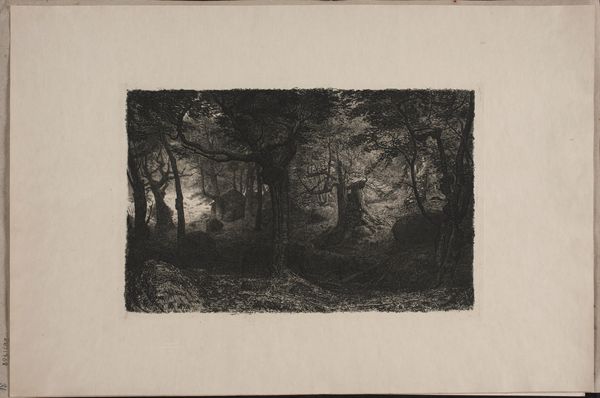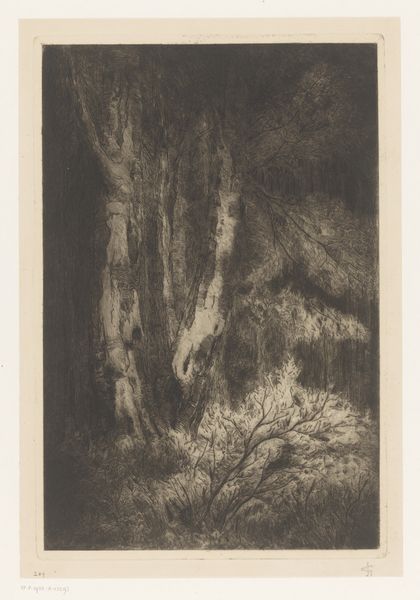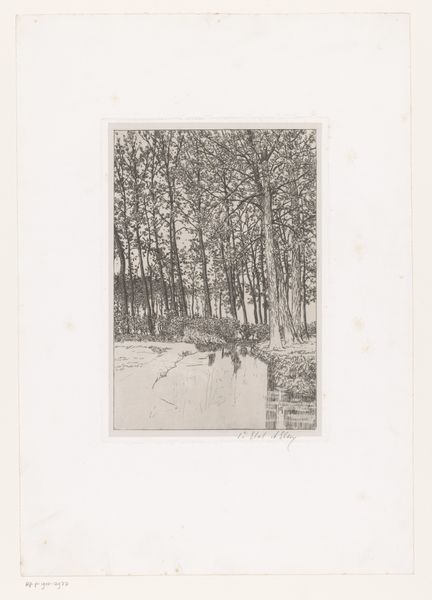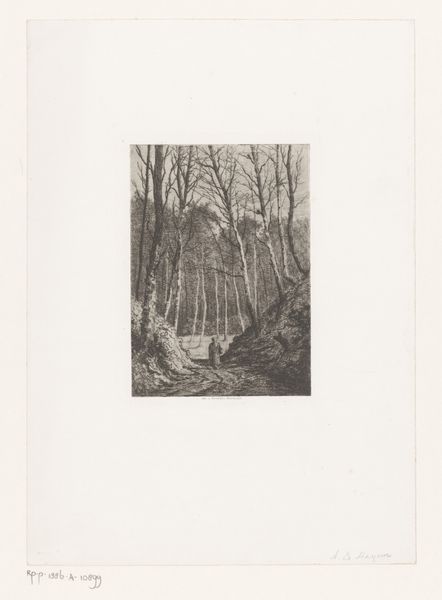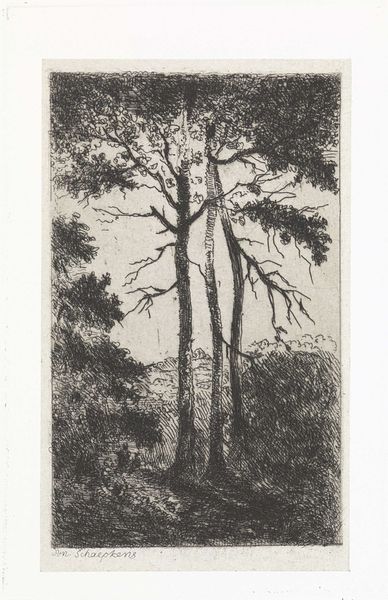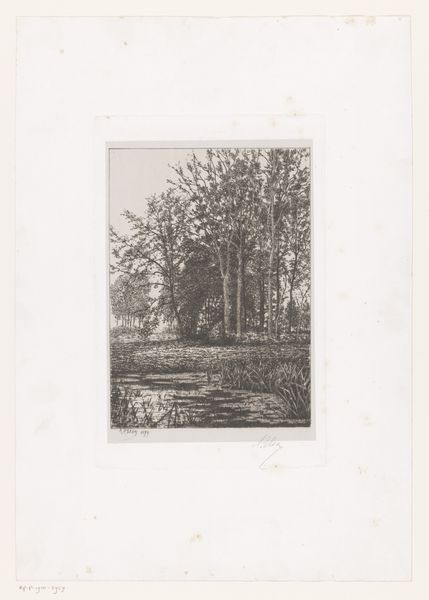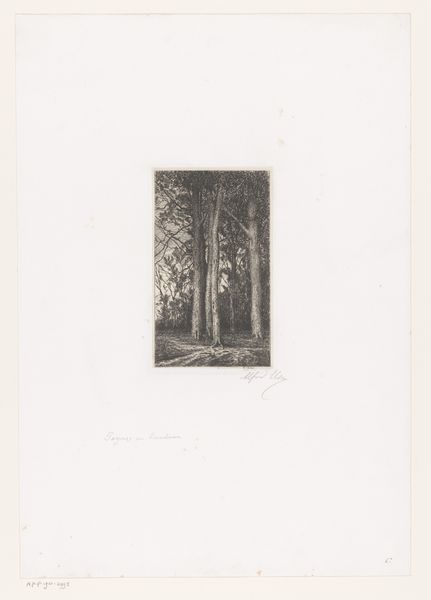
drawing, print, etching, paper
#
drawing
# print
#
etching
#
landscape
#
paper
#
romanticism
Dimensions: 192 × 132 mm (plate); 301 × 217.5 mm (sheet)
Copyright: Public Domain
Editor: We're looking at "Trees," an etching by Henri-Joseph Harpignies from 1848, held here at the Art Institute of Chicago. The dramatic contrast really strikes me; it’s like a memory struggling to surface from the darkness. What stands out to you when you look at this? Curator: The stark contrasts definitely capture the romantic spirit of the era. But it’s the *why* of that darkness that fascinates. Think about the forest as a primal space in the collective psyche. What might the etching process, emphasizing light and shadow, evoke in that context? Editor: I guess I see the light as hope, or maybe knowledge breaking through, but the darkness feels almost… overwhelming? Curator: Precisely! Harpignies, working in the mid-19th century, inherits centuries of symbolic weight associated with forests - places of both refuge and danger, spiritual insight and bewilderment. Consider how these archetypes operate within Romanticism. Are the trees welcoming, or imposing? Editor: Imposing, definitely. They feel almost like silent figures watching me. The etching reinforces that, like they're emerging from a hidden space. Curator: And that’s the power of the image. Harpignies isn’t just showing us trees, he's tapping into something deeper. Etching allows for fine detail emerging from the dark plate; this mirroring creates a powerful invitation into this charged, symbolic landscape. How does that interplay affect your experience of the artwork now? Editor: It makes me think about what other memories are hidden in those dark spaces and how they shape what I see in the light. It is less about just seeing trees and more about thinking about the implications of memory itself. Curator: Absolutely. He provides visual cues not just to a physical space but to layers of history, emotion and even a pre-linguistic ancestral knowledge that shape our present.
Comments
No comments
Be the first to comment and join the conversation on the ultimate creative platform.
